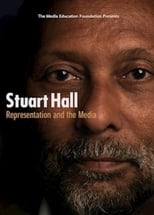

Sut Jhally
in Kenya
Sut Jhally is Professor of Communication at the University of Massachusetts at Amherst and founder and Executive Director of the Media Education Foundation (MEF). He is one of the world's leading scholars looking at the role played by advertising and popular culture in the processes of social control and identity construction. The author of numerous books and articles on media (including The Codes of Advertising and Enlightened Racism) he is also an award-winning teacher (a recipient of the Distinguished Teaching Award at the University of Massachusetts, where the student newspaper has also voted him "Best professor"). In addition, he has been awarded the Distinguished Outreach Award, and was selected to deliver a Distinguished Faculty Lecture in 2007.
He is best known as the producer and director of a number of films and videos (including Dreamworlds: Desire/Sex/Power in Music Video; Tough Guise: Media, Violence and the Crisis of Masculinity; and Hijacking Catastrophe: 9/11, Fear & the Selling of American Empire) that deal with issues ranging from gender, sexuality and race to commercialism, violence and politics. Born in Kenya, raised in England, and educated in graduate studies in Canada, he currently lives in Northampton, Massachusetts.
He is best known as the producer and director of a number of films and videos (including Dreamworlds: Desire/Sex/Power in Music Video; Tough Guise: Media, Violence and the Crisis of Masculinity; and Hijacking Catastrophe: 9/11, Fear & the Selling of American Empire) that deal with issues ranging from gender, sexuality and race to commercialism, violence and politics. Born in Kenya, raised in England, and educated in graduate studies in Canada, he currently lives in Northampton, Massachusetts.
Movies for Sut Jhally...

Title: Advertising at the Edge of the Apocalypse
Released: March 20, 2018
Type: Movie
In this highly anticipated sequel to his groundbreaking, ADVERTISING AND THE END OF THE WORLD, media scholar Sut Jhally explores the devastating personal and environmental fallout from advertising, commercial culture, and rampant American consumerism. Ranging from the emergence of the modern advertising industry in the early 20th century to the full-scale commercialization of the culture today, Jhally identifies one consistent message running throughout all of advertising: the idea that corporate brands and consumer goods are the keys to human happiness. He then shows how this powerful narrative, backed by billions of dollars a year and propagated by the best creative minds, has blinded us to the catastrophic costs of ever-accelerating rates of consumption.


Title: The Occupation of the American Mind
Character: Self - Professor, University of Massachusetts
Released: January 19, 2016
Type: Movie
Over the past few years, Israel's ongoing military occupation of Palestinian territory and repeated invasions of the Gaza strip have triggered a fierce backlash against Israeli policies virtually everywhere in the world—except the United States. This documentary takes an eye-opening look at this critical exception, zeroing in on pro-Israel public relations efforts within the U.S.


Title: Feeding Frenzy: The Food Industry, Obesity and the Creation of a Health Crisis
Character: self
Released: January 1, 2013
Type: Movie
In the past three decades, obesity rates in the US have more than doubled for children and tripled for adolescents, and 70% of adults are now obese or overweight. The result has been a widening epidemic of obesity-related health problems, including coronary heart disease, high blood pressure, stroke, and Type 2 diabetes. While discussions about this spiraling health crisis have tended to focus on the need for more exercise and individual responsibility, FEEDING FRENZY trains its focus squarely on the responsibility of the processed food industry and the outmoded government policies it benefits from. It lays bare how taxpayer subsidies designed to feed hungry Americans during the Great Depression have enabled the food industry to flood the market with a rising tide of cheap, addictive, high calorie food products, and offers an engrossing look at the tactics of the multi billion-dollar marketing machine charged with making sure that every one of those surplus calories is consumed.


Title: The Codes of Gender
Character: Himself
Released: October 13, 2010
Type: Movie
Arguing that advertising not only sells things, but also ideas about the world, media scholar Sut Jhally offers a blistering analysis of commercial culture's inability to let go of reactionary gender representations. Jhally's starting point is the breakthrough work of the late sociologist Erving Goffman, whose 1959 book The Presentation of the Self in Everyday Life prefigured the growing field of performance studies. Jhally applies Goffman's analysis of the body in print advertising to hundreds of print ads today, uncovering an astonishing pattern of regressive and destructive gender codes. By looking beyond advertising as a medium that simply sells products, and beyond analyses of gender that tend to focus on either biology or objectification, The Codes of Gender offers important insights into the social construction of masculinity and femininity, the relationship between gender and power, and the everyday performance of cultural norms.


Title: Dreamworlds 3: Desire, Sex, and Power in Music Video
Character: Himself (Narrator)
Released: December 4, 2007
Type: Movie
Dreamworlds 3 examines the stories contemporary music videos tell about girls and women, and encourages viewers to consider how these narratives shape individual and cultural attitudes about sexuality. Illustrated with hundreds of up-to-date images, Dreamworlds 3 offers a unique and powerful tool for understanding both the continuing influence of music videos and how pop culture more generally filters the identities of young men and women through a dangerously narrow set of myths about sexuality and gender. In doing so, it inspires viewers to reflect critically on images that they might otherwise take for granted.


Title: Stuart Hall: Representation & the Media
Character: Himself
Released: January 1, 1997
Type: Movie
Cultural theorist Stuart Hall offers an extended meditation on representation. Moving beyond the accuracy or inaccuracy of specific representations, Hall argues that the process of representation itself constitutes the very world it aims to represent, and explores how the shared language of a culture, its signs and images, provides a conceptual roadmap that gives meaning to the world rather than simply reflecting it. Hall's concern throughout is the centrality of culture to the shaping of our collective perceptions, and how the dynamics of media representation reproduce forms of symbolic power.
